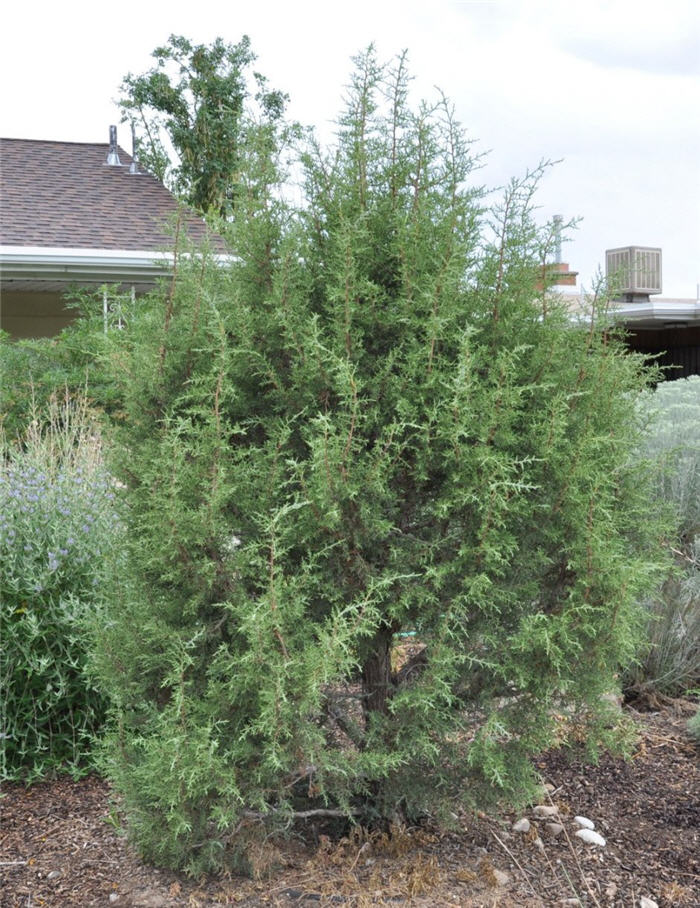| Botanical Name: Juniperus osteosperma | |
| Common Name: Utah Juniper |

-
Anatomy
-
Culture
-
Design
Plant Type
Conifer
Height Range
12-25'
Flower Color
n/a
Flower Season
n/a
Leaf Color
Light Green, Yellow Green
Bark Color
Brown, Grey
Fruit Color
Brown
Fruit Season
Winter
Sun
Full
Water
Very Low
Growth Rate
Slow
Soil Type
Sandy, Clay, Loam, Rocky, Unparticular
Soil Condition
Average, Rich, Poor, Well-drained, Dry
Soil pH
Neutral, Basic
Adverse Factors
n/a
Design Styles
Meadow, Ranch, Spanish, Native Garden
Accenting Features
Fragrance, Silhouette
Seasonal Interest
Winter, Fall
Location Uses
Background, Shrub Border
Special Uses
Hedge, Screen, Wind Break
Attracts Wildlife
Birds
Information by: Stephanie Duer
Photographer:
Photographer:
-
Description
-
Notes
A Utah native. this native evergreen grows about 20 feet tall and 10 feet wide. While generally taller than wide, it is still quite rounded in form. Green to olive green in color, with reddish brown cones in the winter. Though Utah juniper is probably the most drought tolerant tree in Utah, in a landscape setting, planted closely with other plants, its water needs are a bit more than it would be in nature. Even so, this is a great low-water evergreen and is a fine evergreen addition to a low water landscape.
Grow in fine to coarse, and even rocky soil, but definatley well drained. Tolerant of alkaline soil. Full sun. Little or no water on establishment. Slow rate of growth.